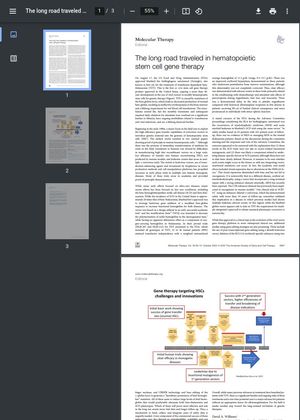The Long Road Traveled in Hematopoietic Stem Cell Gene Therapy
October 2022
in “
Molecular therapy
”

TLDR The FDA approved the first gene therapy for a blood disorder after overcoming early challenges and demonstrating patient benefits.
The FDA's approval of bluebird bio's betibeglogene autotemcel (Zynteglo) for transfusion-dependent beta-thalassemia (TDT) marks a significant milestone in hematopoietic stem cell gene therapy, culminating over 40 years of development. This ex vivo gene therapy uses lentivirus vectors to introduce a modified beta-globin gene, achieving transfusion independence in 89% of treated patients (32 out of 36) in pivotal trials. Despite the success, concerns about potential myelodysplastic syndrome (MDS) and acute myeloid leukemia, observed in related sickle cell disease trials, were addressed, showing no evidence of MDS in TDT patients. The high cost of $2.8 million per treatment and limited global accessibility highlight the need for scalable and cost-effective solutions. Future advancements may come from gene editing technologies like CRISPR, which promise further improvements in safety and efficacy.